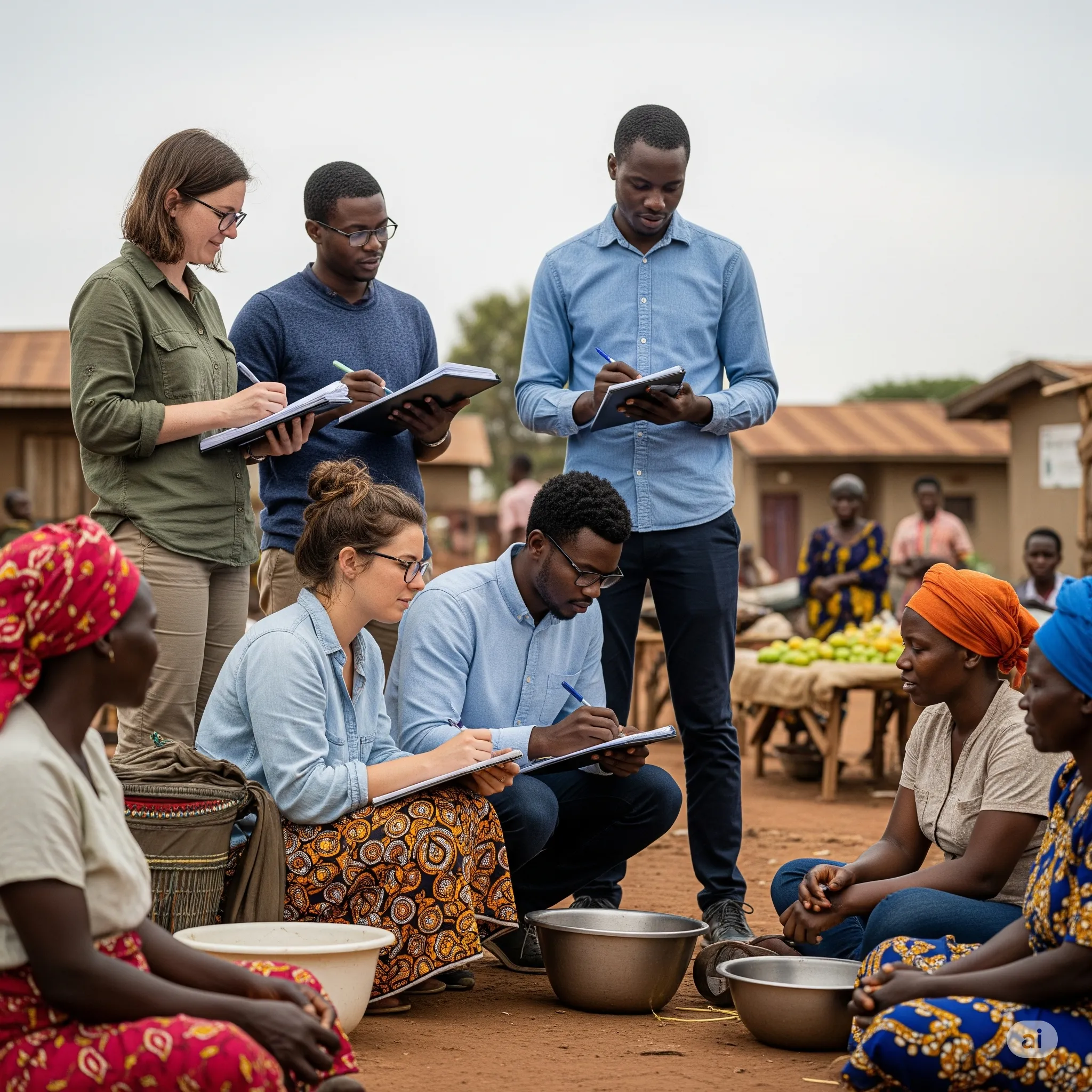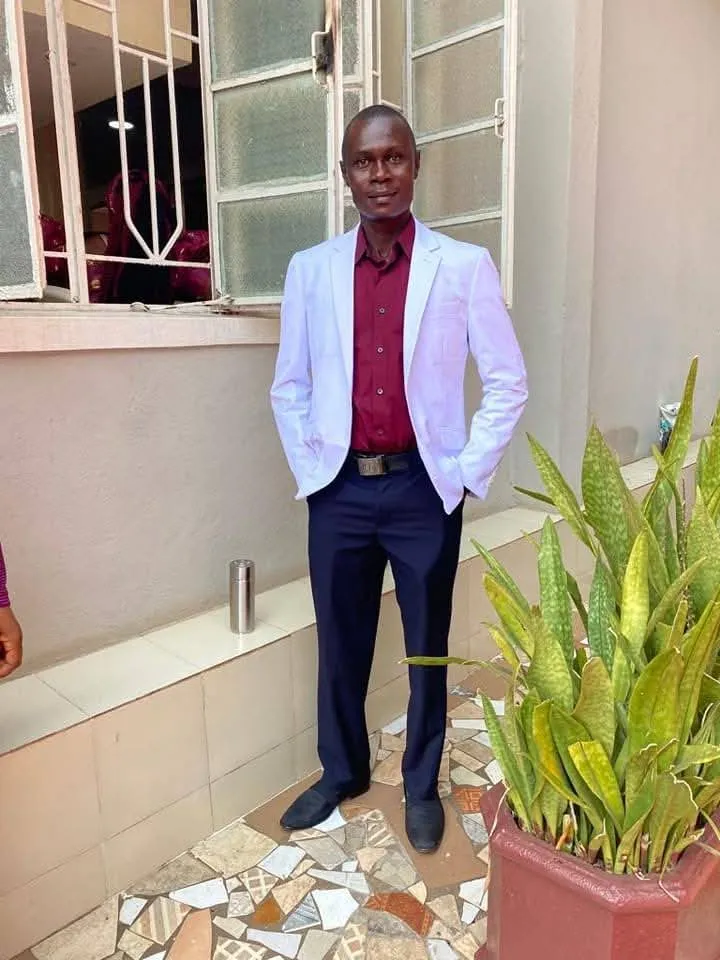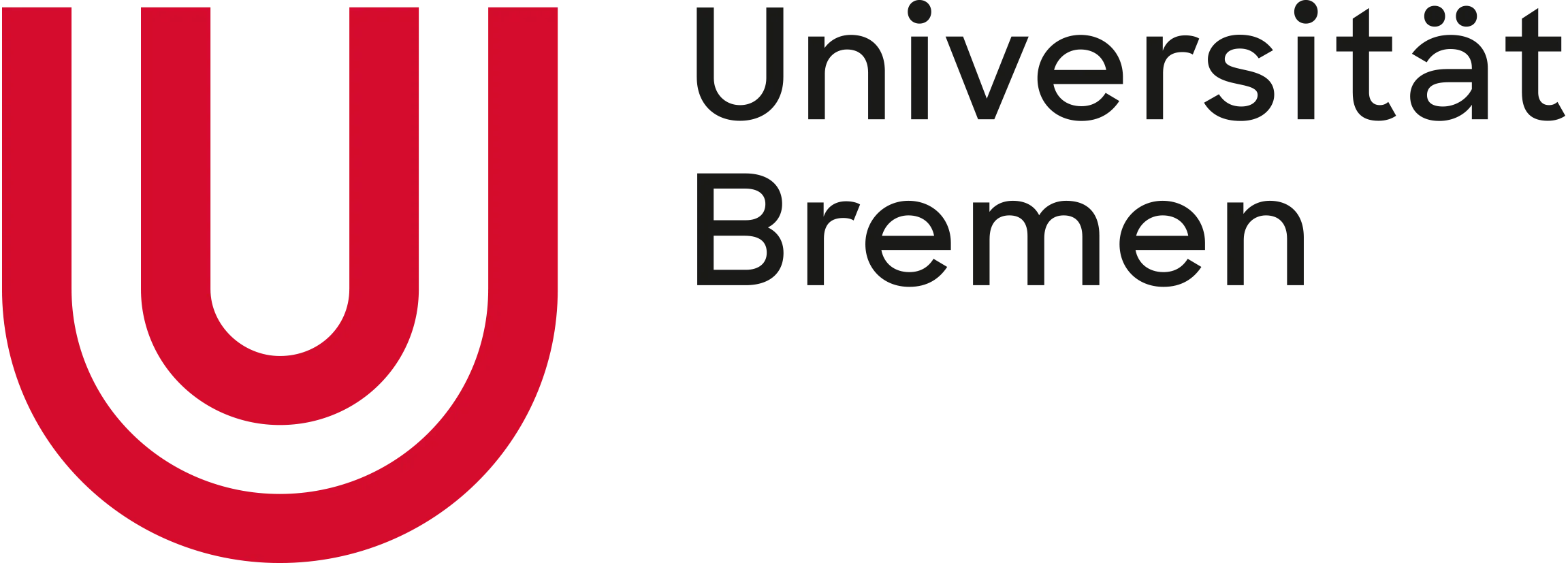
Sierra Leonean Co-researchers Share Their Views on the Labour Market
October 25, 2025 | Co-researchers
Three of our Sierra Leonean co-researchers—Michael Davies, Abu Bakarr Kamara, and Daniel Sesay—offer their unique perspectives on the challenges and potential of the youth labour market. They discuss the mismatch between education and employment, the dominance of informal work, and the pervasive issue of nepotism, highlighting that youth resilience offers a path toward a demographic dividend if structural reforms are implemented.
Sierra Leonean Co-researchers Share Their Views on the Labour Market

Michael Davies
researcher
MY VIEW ON YOUTH LABOUR MARKET IN SIERRA LEONE
In my view, the youth labour market in Sierra Leone reflects both the potential of a young population and the systemic challenges of an underdeveloped economy. The country has an energetic and entrepreneurial youth base, as seen in the high rate of self-employment and survivalist ventures like petty trading and motorcycle taxi riding. However, the dominance of informal and low-paying work is not a sign of economic vibrancy—it is a coping mechanism in the absence of formal opportunities.
The biggest problem is the disconnect between education and employment. Many young people invest in schooling but graduate into a labour market that cannot absorb them. This creates frustration, underemployment, and in some cases, disillusionment with education. Unless education and skills training are more tightly aligned with practical job opportunities particularly in sectors like agriculture, digital economy, renewable energy, and light manufacturing. This mismatch will continue to waste human capital.
Another major issue is the lack of social protection and job security. The overwhelming majority of young people work without contracts, pensions, or safety nets. This leaves them vulnerable to exploitation, poverty, and instability, and weakens trust in institutions.
I also see the overreliance on personal connections and nepotism as both a cultural and structural barrier. It excludes capable but less-connected youths, undermines meritocracy, and reinforces inequality. This is why many feel trapped in low-quality jobs even though they are willing and able to contribute more productively.
Despite these challenges, I am encouraged by the resilience and optimism of Sierra Leonean youth. The survey shows that even in precarious work, they seek dignity, aspire to better jobs, and are actively looking for opportunities. This energy can be harnessed if the right investments are made; expanding vocational training, improving access to finance for youth-led businesses, creating transparent recruitment systems, and encouraging industries that can generate decent work.
In summary, the youth labour market in Sierra Leone is not just an economic issue but a national development priority. If the country fails to address youth underemployment and informalisation, it risks deepening cycles of poverty, inequality, and social unrest. But if it succeeds in channelling the creativity and resilience of its young people, it could turn its “youth bulge” into a demographic dividend.

Abu Bakarr Kamara
researcher
As a youth, living in Sierra Leone, navigating the job market can feel like a double-edged sword both daunting and full of potential. Official figures indicate that youth unemployment, ages 15-24, is relatively low by global standards, sitting at around 3.6% in 2024. However, it is clear that those figures don’t paint the full picture. Many of us find ourselves underemployed, caught in informal jobs, or working in positions that don’t match our skills. A major hurdle is the gap between what we learn in school or university and what employers are actually looking for. Even graduates often find themselves applying for numerous jobs, with only a handful being a good fit. There’s a strong demand for vocational and technical skills, and various initiatives led by the government and NGOs are stepping up to train young people in areas like machinery, agribusiness, and road construction.
Another challenge is access. Many of us live in rural areas, far from industrial hubs, and we often struggle with transportation, connections, or even the resources needed to kickstart our own ventures. Thankfully, some programs are working to bridge this gap, offering vocational training along with starter kits and youth livelihood projects. One recent initiative reported that 62% of its participants were able to start earning money whether through self-employment or wage jobs after completing their training. Additionally, there are efforts from the government and partners to create short-term jobs, like “green public works” in Freetown, where young people are paid to plant trees and participate in clean-up efforts. While these initiatives are helpful, they tend to be temporary. For real lasting change, I believe we need to better align education with job opportunities, provide more support for young entrepreneurs, improve infrastructure in rural areas, and create more stable formal job prospects.

Daniel Sesay
researcher
THE SITUATION OF YOUTH EMPLOYMENT IN SIERRA LEONE
Sierra Leone is one of the West African countries with a large population of educated young people. Every year, thousands of students graduate from universities and colleges with the hope of securing a decent job to support themselves and their families. Unfortunately, only a small fraction of them succeeds. Many graduates lack the necessary technical and entrepreneurial skills to create self-employment, while the formal job market itself is shrinking and unable to absorb the growing number of job seekers.
The employment situation continues to worsen as many qualified young people are overlooked for positions in government institutions, industries, and private companies. Instead, employment opportunities are often influenced by family ties, political connections, ethnic background, or even personal relationships . This culture of favoritism and nepotism has weakened the very foundation of institutions, as people are employed not based on merit but on who they know. The result is widespread mismanagement, inefficiency, and the collapse of organizations that should otherwise contribute to national development.
Another painful reality is that even when organizations advertise vacancies, the process is often not transparent. Young graduates spend time and money applying for these jobs, attending interviews, and demonstrating competence only to discover later that the vacancies were already “reserved” for individuals chosen beforehand. This has left many young people frustrated, disillusioned, and without hope.
The impact of youth unemployment is enormous. With more than 60% of Sierra Leone’s youth unemployed or underemployed, according to recent labor statistics, the country risks deepening poverty, crime, drug abuse, and irregular migration. A society that does not create meaningful opportunities for its youth endangers its own future.
However, all hope is not lost. Sierra Leone can begin to reverse this crisis by promoting a culture of meritocracy in employment. This means giving opportunities to competent people, regardless of their political, ethnic, or social background. In addition, government and private institutions must invest in skill development programs, entrepreneurship training, and mentorship opportunities to prepare young people not only to seek jobs but also to create them. Strengthening industries such as agriculture, technology, tourism, and manufacturing can also open new doors for sustainable employment.
Suppose young people are given the space to contribute based on merit and skill. In that case, Sierra Leone will not only reduce unemployment but also build strong, healthy institutions capable of delivering results for generations to come. The future of Sierra Leone depends on empowering its youth today.

Daniel Sesay (Co-research)
What Must Change?
- Skills alignment: Ensure that university, technical, and vocational training includes practical, market-relevant skills, not just theory.
- Fair recruitment: Make hiring processes transparent, merit-based, and open so opportunities are not reserved for those with connections.
- Youth empowerment: Support for young entrepreneurs, including access to finance, mentoring, and business networks.
- Focus on urban youth: Since urban areas show far higher rates of unemployment or inactivity, targeted interventions there are essential.
- Reducing underemployment and discouragement: not just raising the formal unemployment rate but ensuring that work is meaningful and sufficient.
Only by tackling both the structural barriers and the unfair social practices can Sierra Leone build healthier institutions, ensure young people’s potential is realized, and reduce the painful gap between what young people know and what they can do. However, this research will provide a deeper understanding of the Situation of Youth Employment in Sierra Leone.

Launch of the Labour market research Website!
May 25, 2025 | Labour market research Team
We’re absolutely thrilled to announce the official launch of the Labour market research website! This milestone marks a significant step in sharing our ongoing research into the complex dynamics of Youth Labour Market perception in Sierra Leone. Our goal is to create a central hub for academics, policymakers, and anyone interested in youth employment and development in the region.
Launch of the Labour market research Website!
We are delighted to announce the official launch of the Labour market research website! This milestone marks a significant step in sharing our ongoing research into the complex dynamics of Youth Labour Market perception in Sierra Leone.
Our goal is to create a central hub for academics, policymakers, and anyone interested in youth employment and development in the region. The website provides detailed information on:
- The Research Project: Our methodology, main research themes, and ethical considerations.
- The Team: Profiles of our researchers, co-researchers, and institutional partners.
- Publications: Access to our academic articles, research reports, and policy briefs.
- Multimedia: Infographics, audiovisual materials, and real stories from young people in Sierra Leone.
This platform will be constantly updated with our latest findings, news, and insights directly from the field. We encourage you to explore the site, engage with our content, and share it within your networks.
Thank you for your interest and support as we work to generate evidence-based insights that inform policies supporting decent work for young people in Sierra Leone.
May 25, 2025 | Labour market research Team

